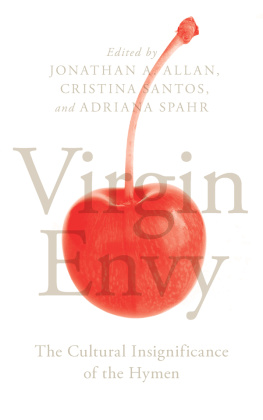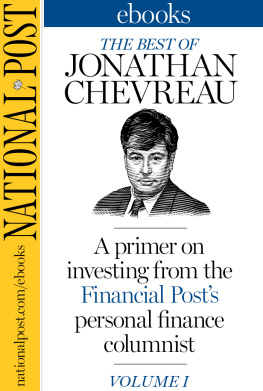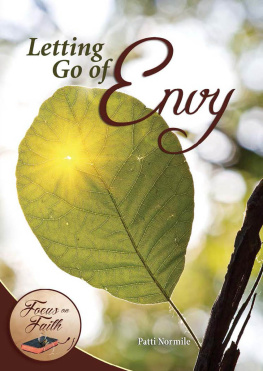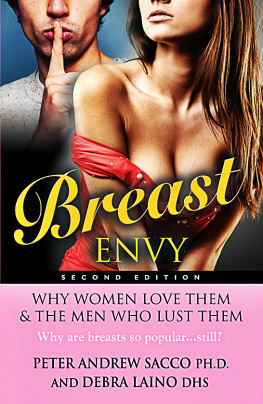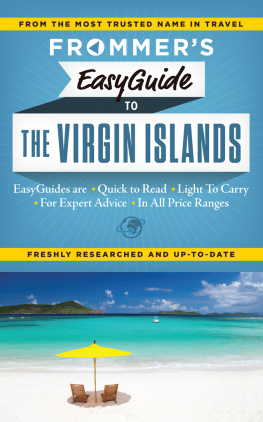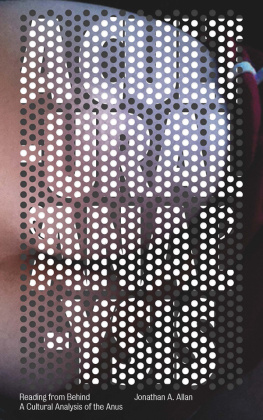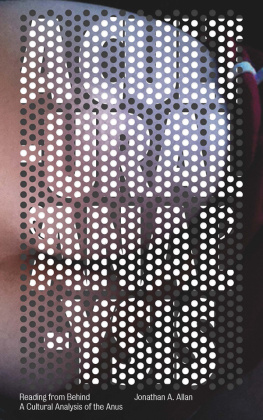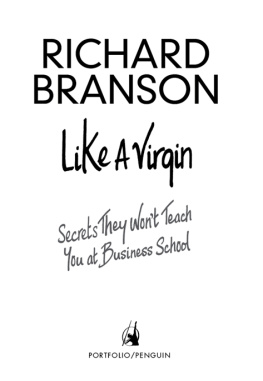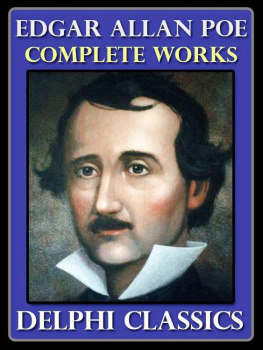Allan Jonathan A. - Virgin envy: the cultural insignificance of the hymen
Here you can read online Allan Jonathan A. - Virgin envy: the cultural insignificance of the hymen full text of the book (entire story) in english for free. Download pdf and epub, get meaning, cover and reviews about this ebook. City: London, year: 2016, publisher: National Book Network International;Zed Books, genre: Romance novel. Description of the work, (preface) as well as reviews are available. Best literature library LitArk.com created for fans of good reading and offers a wide selection of genres:
Romance novel
Science fiction
Adventure
Detective
Science
History
Home and family
Prose
Art
Politics
Computer
Non-fiction
Religion
Business
Children
Humor
Choose a favorite category and find really read worthwhile books. Enjoy immersion in the world of imagination, feel the emotions of the characters or learn something new for yourself, make an fascinating discovery.
- Book:Virgin envy: the cultural insignificance of the hymen
- Author:
- Publisher:National Book Network International;Zed Books
- Genre:
- Year:2016
- City:London
- Rating:5 / 5
- Favourites:Add to favourites
- Your mark:
- 100
- 1
- 2
- 3
- 4
- 5
Virgin envy: the cultural insignificance of the hymen: summary, description and annotation
We offer to read an annotation, description, summary or preface (depends on what the author of the book "Virgin envy: the cultural insignificance of the hymen" wrote himself). If you haven't found the necessary information about the book — write in the comments, we will try to find it.
Virgin envy: the cultural insignificance of the hymen — read online for free the complete book (whole text) full work
Below is the text of the book, divided by pages. System saving the place of the last page read, allows you to conveniently read the book "Virgin envy: the cultural insignificance of the hymen" online for free, without having to search again every time where you left off. Put a bookmark, and you can go to the page where you finished reading at any time.
Font size:
Interval:
Bookmark:

Virgin
Envy
The Cultural Insignificance
of the Hymen
Edited by JONATHAN A. ALLAN,
CRISTINA SANTOS and
ADRIANA SPAHR

Zed Books
LONDON
Virgin Envy: The Cultural Insignificance of the Hymen is published by arrangement with the University of Regina Press, Regina, Saskatchewan S4S 0A2 Canada.
www.uofrpress.ca
First published in the United States and Canada by the University of Regina Press.
This edition published in the rest of the world in 2016 by Zed Books Ltd,
The Foundry, 17 Oval Way, London SE11 5RR, UK.
www.zedbooks.net
Copyright University of Regina Press 2016
The rights of Jonathan A. Allan, Cristina Santos and Adriana Spahr to be identified as the editors of this work have been asserted by them in accordance with the Copyright, Designs and Patents Act, 1988.
Cover design by www.alice-marwick.co.uk
Cover photo T.W./Shutterstock
All rights reserved. No part of this publication may be reproduced, stored in a retrieval system or transmitted in any form or by any means, electronic, mechanical, photocopying or otherwise, without the prior permission of Zed Books Ltd.
A catalogue record for this book is available from the British Library.
ISBN 978-1-78699-036-5 hb
ISBN 978-1-78699-035-8 pb
ISBN 978-1-78699-038-9 pdf
ISBN 978-1-78699-037-2 epub
ISBN 978-1-78699-039-6 mobi
CONTENTS
Jonathan A. Allan, Cristina Santos, and Adriana Spahr
Amy Burge
Jodi McAlister
Jonathan A. Allan and Cristina Santos
Janice Zehentbauer and Cristina Santos
Kevin McGuiness
Gibson Ncube
Asma Sayed
Tracy Crowe Morey and Adriana Spahr
ACKNOWLEDGEMENTS
J onathan Allan would like to thank his co-editors, Cristina Santos and Adriana Spahr, examples of what the academy could look like if we all collaborated a bit more, led with kindness and generosity, and continued to encourage one another. He would also like to thank the University of Regina Press, which has reminded him, time and again, that its goals are to save the humanities from itself and to reach a wider audience. In particular, thanks to Bruce Walsh, who continues to believe in big, bold ideas, and to Karen Clark for guiding this project from start to finish, providing rich critiques, and asking the right questions at the right times. He would also like to thank his research assistant, Morganna Malyon, for tracking down citations and reading and rereading chapters of this book. Finally, this project was undertaken, in part, thanks to funding from the Canada Research Chairs Program, and he extends his thanks to the Canadian government and Canadian taxpayers for supporting the Canada Research Chairs Program.
Cristina Santos would like to thank the Humanities Research Institute at Brock University for its financial funding for this project. She would also like to thank her family for their unending patience and support. It was a true pleasure to come full circle with some of her students, Jonathan Allan, Janice Zehentbauer, and Kevin McGuiness. What began as an animated discussion in the masters class on monstrous women has come to fruition in this volume, and it is to you that I dedicate it. May all your future endeavours be fruitful and fulfilling.
Adriana Spahr would like to dedicate this work to Fernando and Carlina Bogado. She would also like to thank her family for their unconditional support and all the contributors to this volume (especially Cristina Santos, Tracy Crowe Morey, and Jonathan Allan). Without their hard work and commitment, this volume would not have come to fruition.
INTRODUCTION
OUR TANTALIZING DOUBLE:
ENVIOUS VIRGINS, ENVYING
VIRGINS, VIRGIN ENVY
Jonathan A. Allan, Cristina Santos, and Adriana Spahr
I n their 2006 collection Defiant Deviance: The Irreality of Reality in the Cultural Imaginary , Cristina Santos and Adriana Spahr attempted, as editors, to imagine a variety of ways in which deviance could be defiant; they were not yet thinking about virginity, certainly not about the ways in which it is developed here in Virgin Envy: The Cultural (In)Significance of the Hymen , and back then Jonathan Allan was still a graduate student. Today the three of us return to some of the questions first posed in Defiant Deviance , but now we are interested in the utter messiness of virginitysince it often appears at once as enviable and undesirable, as valuable and detrimental, as normative and deviant. We are interested too in the queering of virginity and in the questioning of the significance of the hymen when it comes to virginity in order to understand virginity in all of its different formulations.
The title that we have chosen for this collection obviously calls on and plays with the Freudian (and therefore often maligned) concept of penis envy. As editors, we discussed the different perspectives and ideas that circulate around that concept, and that is why Virgin Envy seemed to be an appropriate title for this volume. The complexity, confusion, and persistence of Freuds penis envy, we agreed, are akin in many ways to how our culture thinks, talks, and writes about virginity. Definitely, our ideas about virginitythe hymen in particularand the phallus are cultural fantasies that continue to inspire, provoke, and unsettle us.
In many ways, virginity also brings us to what Roland Barthes calls the muck of language, when a conceptlove in his caseis both/and. That is, when it is both too much and too little. On a related note, Adam Phillips, writing about sexuality and envy, notes that
when it comes to the excesses of sexuality we cant always tell whether our morality is a cover story for our envy, or simply a rationalization of fear; we would like to be that excited, that promiscuous, that abandoned, but it is too much risk for us . We dont, on the whole, tend to envy other peoples appetite for food, but other peoples appetite for sexespecially in a society in which sex represents health, vitality, and youthgets to us. People are even more excessive when they talk about sexual excesses. The person who haunts us is the person who is having more pleasure than us. Our tantalizing double.
As the chapters in this collection show, virginity flirts with both this muck of language and this tantalizing double; we are all haunted, it seems, by the virginity that we once had and lost or the virginity that we wish we could rid ourselves of. When we imagine our virginity loss stories, we might think back to the disappointment or the excitement of that first time; we might think back with regret, sadness, or joy. Virginity is seemingly caught forever in this double bind, in which it is something revered and wanted, yet ridiculed and unwanted. We can think here of the vestal virgins, the Virgin Mary, at the same time as we think of the sad, pathetic virgin of Steve Carrells character in the popular film The 40-Year-Old Virgin .
In thinking about virgin envy in particular, we are struck by how Phillips imagines envy as an essential ingredient of our failures Envy is never just one thing; it is always caught in the double lining of our affective lives, how we imagine that the virgin has access to something that weve lost, or how the virgin imagines that the non-virgin has gained a hitherto unattained but desired knowledge. How do we imagine virginity as either a success or a failure? Does one succeed if one fails to lose ones virginity, or does one fail if one succeeds in losing ones virginity? Many of the writers in this volume tangle with these questions of what it means to be successful in terms of ones virginity. Does it mean that one is like Joan of Arc? Or does it mean that one was virginal for long enough, lost virginity in an appropriate manner, and then moved on? Although we are all familiar with virginitywe were all once virgins or might still be virginsquestions of virginity are confusing, complicated, and curious.
Next pageFont size:
Interval:
Bookmark:
Similar books «Virgin envy: the cultural insignificance of the hymen»
Look at similar books to Virgin envy: the cultural insignificance of the hymen. We have selected literature similar in name and meaning in the hope of providing readers with more options to find new, interesting, not yet read works.
Discussion, reviews of the book Virgin envy: the cultural insignificance of the hymen and just readers' own opinions. Leave your comments, write what you think about the work, its meaning or the main characters. Specify what exactly you liked and what you didn't like, and why you think so.

